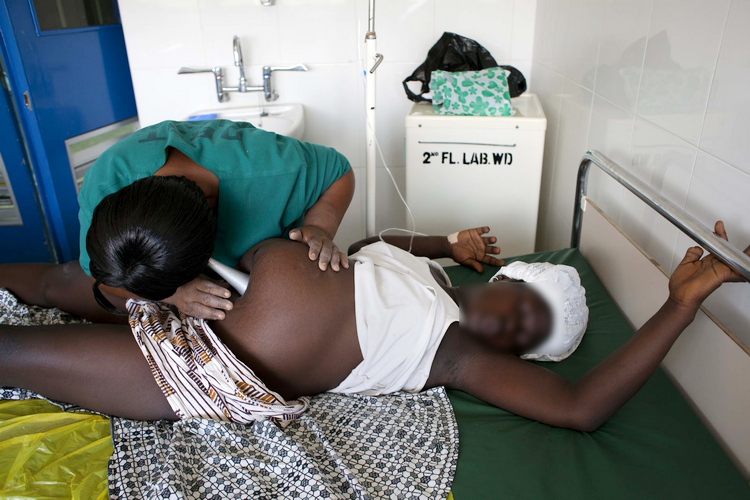
Shave your wives – Husbands of expectant mothers advised
A nurse at the Surgical Department of the Korle Bu Teaching Hospital has urged husbands of expectant mothers to shave their wives to prevent neonatal infection as babies have weak immune systems which make them vulnerable to all sorts of ailments.
According to Mr Sebastian Ayivor hairs harbour a lot of microbial organisms which can expose babies to eye infections.
The spontaneous vaginal delivery (SVD) is normally done with the cephalic position (a birth position where the head enters the pelvis first), and as such trapped microbes around the vagina can be transmitted to the eyes of the baby, he explained.
He said microbes were harboured or trapped in unshaved body parts, hence shaving was done to free or reduce their number.
Apart from shaving giving midwives the visual luxury for easy access during delivery, it also prevented a waste of time as most often during labour, the midwives had to shave mothers before proceeding.
Mr Ayivor explained that the size of the baby bump, especially during the third trimester, made it difficult for expectant mothers to shave and therefore need the support of their partners.
In cases where the expectant mother is not married or lives far away from her husband, he advised that they seek help from their caretaker, relatives or close friends.
“Some come in with unshaved private parts. During antenatal visit, routine physical examination is done where the suprapubic is palpated to see the presentation of the baby and when midwives detect that the place is unshaved, they are advised to shave before their next visit.
“Those who default are the ones who mostly patronise the services of traditional birth attendants.
“They sometimes refer their clients to the hospital when they think they cannot do home delivery and most of them come with unshaved private parts,” he pointed out.
Although shaved private parts may only be associated with normal birth, Mr Ayivor explained that, “delivery per SVD can turn to a caesarean section which also requires shaving before it is done to prevent infections such as intraoperative or postoperative infection, which are both surgical infections.”
